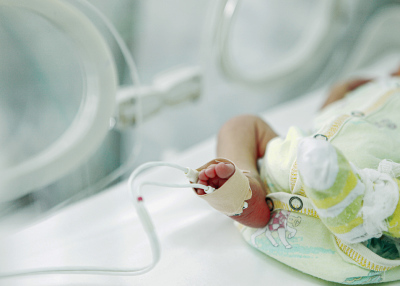Justice Sotomayor is wrong about abortion

As the medical director of a 50-bed neonatal intensive care unit (NICU) that cares for babies born weighing less than 3 pounds and 5 ounces, I was frankly shocked by Justice Sonia Sotomayor’s outdated assertion last week that very few doctors — she called us “a gross minority” — believe pre-term babies can experience pain at younger than 24 or 25 weeks gestation.
During the Supreme Court oral arguments on Mississippi’s 15-week limit on elective abortions, Justice Sotomayor was openly skeptical that advancements in science and medicine over the last 30 years have any bearing on fetal viability. She questioned whether a baby’s pain is even relevant to the abortion debate and declared the idea of early fetal pain is “not well founded in science at all.” She described doctors who take fetal pain seriously as “fringe.”
Science has not stood still since Roe was decided in 1973. Modern studies demonstrate improved outcomes for babies born on the edge of viability when their pain is avoided, mitigated, or treated. So, it’s good that neonatologists and anesthesiologists are not listening to Justice Sotomayor’s clinical advice. Treating pain in our very youngest patients is not a fringe or fluky thing to do; it is our current, evidence-driven, medical standard of care.
Neonatal medicine treats newborn babies, including those born prematurely. Today some top neonatal intensive care units report that more than 3 out of 4 premature babies born at 22-23 weeks survive. Just a few decades ago medical intervention at 22 weeks was never even a consideration.
The remarkable progress in prenatal and neonatal care is due to advancing medical technology but also to advancements in patient care, including a priority on minimizing the baby’s pain before and after birth. As one example, during fetal surgery anesthesia is routinely administered both to the mother and the unborn baby. Intentionally decreasing painful procedures (such as blood draws) and avoiding noxious stimulation (such as interrupting an infant’s natural sleep time to check their blood pressure) have contributed measurably to the positive outcomes for babies at the edge of viability.
In fact, the presence of pain in premature infants is so uncontroversial that recent studies involve not only decreasing and/or treating pain, but also reevaluating how to make the neonatal environment more soothing. The science indicates that it is specifically our tiniest, most premature babies that benefit from these adjustments.
During last week’s Supreme Court hearing, Justice Sotomayor cited outdated science in another way. She referred to a 2010 study that concluded preborn infants are not capable of pain until the cerebral cortex becomes active between 24-30 weeks of gestation. The co-author of the study was an internationally known pro-choice neuroscientist named Stuart Derbyshire. To this day, pro-abortion activists routinely cite the study to claim that abortion before 24 weeks hurts no one.
Yet Stuart Derbyshire has firmly recanted his 2010 finding because further research demonstrated that preborn infants can experience pain well before they have a developed cortex.
His updated scientific conclusion? “Overall, the evidence, and a balanced reading of that evidence, points towards an immediate and unreflective pain experience mediated by the developing function of the nervous system from as early as 12 weeks.”
The discussion about pain is important because of the ramifications for improving our medical care. However, the capacity to be affected by pain is not what determines our humanity. Neither do the circumstances of conception or whether the new baby is wanted.
Derbyshire confronts this inherent contradiction between abortion and science with rare candor. In a recent interview, he said that even though he remains philosophically pro-choice, from a scientific perspective “the discussion about viability is insane ... If you are defending abortion and you’re trying to say a fetus is like a rock or a tree, then you are in trouble. It is alive.”
He didn’t stop there. Derbyshire told the interviewer that pro-choice advocates like himself (and Justice Sotomayor) need to face the fact that abortion impacts two humans.
It’s a simple truth. The baby is fully human whether or not he or she can feel pain; the baby is fully human whether or not the mother reports feeling the pain of grief (often they do, even if it is complicated). However, in uncovering the intrinsic pain that abortion inflicts on mother and baby, perhaps we may uncover better ways to nurture the mother-infant dyad.
Being pro-life is more than being pro-birth. By better caring for both the mother and the baby may their love ignite the embers of hearts grown old and cold beneath the weight of a law that has damaged and destroyed so many.
Dr. Robin Pierucci, M.D., M.A., is an associate scholar at Charlotte Lozier Institute and chair of the American College of Pediatrics Pro-Life Committee. A clinical neonatologist, she serves as medical director of a 50-bed neonatal intensive care unit.




















